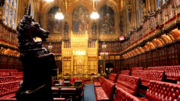Since Selective Licensing was introduced in part three of the 2004 Housing Act, coming into force on 6th April 2004, landlords have viewed it with scepticism. Measures seemed extreme and hit the good landlord with the bad. That would not have mattered so much, had it not hit the pockets of landlords equally. These are expensive schemes and the fee, per property, could be difficult for the very small landlords making very little profit from their properties and feel very unfair to those whose tenants are not contributing to problems in areas designated for licensing.

From 2006 to 1st April 2010, local authorities had to seek approval from the Secretary of State, consultation having taken place and evidence provided of the need for extra measures – significant anti-social behaviour and low demand, leading to property prices falling and void properties which caused general deterioration in areas. The licenses had a 5 year life, which it was believed was sufficient time to turn-around an area. Although never popular with landlords, it did at least mean that a higher authority had to make the decision to approve a scheme and gave another avenue for protest. Salford applied for the first selective licensing area in the country; Manchester designated 5 schemes in different wards.
This changed on 1st April 2010 when a general consent was allowed – local authorities could make their own decisions about licensing, without permission from Central Government. The number of schemes multiplied and increased in scope, with suddenly whole boroughs selectively licensed – Enfield and Liverpool being two that did this. Landlords started to feel that they were being used as a money-making venture, rather than an answer to problem areas. Although local authorities had to consult the landlords, tenants and businesses in the proposed areas, there was a strong feeling that the results produced did not reflect the real situation, but that judicious questioning had produced what the authority wanted to prove the need for schemes.
Do these schemes work? By the same judicious working, statistics can be provided to show they do, though landlords who have experienced it would say otherwise, though it may be that some of the landlords who did not take responsibility for anti-social tenants and poor standard properties were forced to take action.
After 5 years of a selective licensing free-for-all, the Minister of State for Housing and Planning, Brandon Lewis, has announced that from 1st April 2015, if a local authority wants to license an area larger than 20% of the geographical area or the private rented sector, permission must be sought from Government. This would mean any council wishing to emulate Enfield and Liverpool would have to seek Government approval.
It seems the National Landlord’s Association could be partly to thank for this change. They have lobbied since 2010, on the basis that local authorities have abused their power to use blanket licensing schemes without independent scrutiny. Richard Lambert, Chief Executive Officer of NLA, commenting on the changes, said: ‘Hopefully, this now means that councils who are serious about tackling poor property standards and anti-social behaviour will first look to the extensive legal powers they already have to combat the issues’.
Some of us have thought for a long time that the enforcement measures should be used more extensively where there are concerns about standards, but then, income that would generate would be slower and far less certain than can be gained by a licensing scheme, of any size.
For advice on buy to let – General Knowledge







Be the first to comment on "Selective Licensing Schemes – Government approval required"